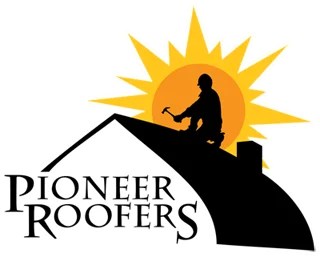Advantages and Disadvantages of Different Roof Types
Whether you’re looking to replace your existing roof or you’re planning a new build, you have a lot to consider when it comes to your roof. Any building’s roof is vital for its structural integrity, and the choices you make will impact your life for decades (or until you sell your property). However, when in doubt, consult your local roofing contractor and ask questions about what roof type will work best for you. Here’s a guide to get you started:
Flat Roofs
Generally, flat roofs aren’t appropriate for the Pacific Northwest due to the amount of rainfall we receive each year. A flat roof’s construction is critical to its function, and a properly installed flat roof may be the best choice for some commercial buildings in the area, despite the PNW precipitation. Keep in mind, though, that a properly constructed and installed flat roof may work well for your home and last for years. Flat roofs aren’t flat. They have a slight pitch to allow for water drainage, so if your roofer knows what they’re doing, your flat roof should drain water well without any pooling. Here’s a look at a couple of the advantages and disadvantages of flat roofs.
Advantages of Flat Roofs
Flat roofs are great for industrial and commercial buildings because they allow for extra storage space and the installation of HVAC units. Flat roofs also provide residential structures with a modern look. Additionally, flat roofs offer residential structures with an additional outdoor living space for a patio or a garden. Flat roofs require less money up front when compared to pitched roofs.
Disadvantages of Flat Roofs
Flat roofs tend to have issues with water leakage due to their slight pitch. Flat roofs work best when they’re constructed with a seamless material such as PVC, TPO, and rubber membrane. While flat roofs tend to cost less upfront, their lifetime costs are more than pitched roof lifetime costs due to ongoing maintenance and potential issues that may arise, especially in high rainfall areas.
Skillion Roofs
Skillion roofs are often referred to as “lean-to” roofs. It’s a sloping roof attached to a taller wall, and can mainly be described as an angled flat roof. While skillion roofs are typically found on home additions, sheds, or porches, they’re also a way to achieve a modern look.
Advantages of Skillion Roofs
Due to their steep pitch, skillion roofs work well in high-precipitation areas. They’re easy to assemble and use less material than other types of roofs. They also look great, and they’re often used architecturally.
Disadvantages of Skillion Roofs
If the roof’s pitch is too steep, the ceilings may end up too low. Additionally, skillion roofs aren’t ideal in high-wind areas. Skillion roofs are also an excellent choice for solar panels.
Pitched Roofs

Pitched roofs are the most common type of roof on homes in the local area. They’re good-looking and traditional, giving your home a classic feel. However, there are multiple things to keep in mind when you decide on the type of roof you want.
Advantages of Pitched Roofs
As mentioned above, pitched roofs have that classic, homey feel to them. Additionally, pitched roofs drain water well, which is great for the rainy Pacific Northwest. The pitch of the roof also prevents water and other debris from hitting the home’s siding. Pitched roofs tend to be more durable than low-pitch or flat roofs, which decreases their lifetime cost due to lower maintenance costs.
Disadvantages of Pitched Roofs
Pitched roofs cost more at installation due to an increase in materials needed. Pitched roofs don’t work well for tall buildings or elaborate building plans, as pitched roofs don’t lend themselves well to some architectural designs.
Questions to Ask Your Roofing Contractor
When trying to decide on the type of roof for your home or commercial property, it’s best to go straight to the experts. After getting advice about the kind of roof that’s best for your home, make sure you ask some of these questions as well to ensure you have the right roofing company for the job.
1. Are You a Licensed Roofing Contractor?
Ensure that your roofer is licensed, and that license is up to date before allowing them to do any work on your home.
2. Do You Have Workman’s Compensation Insurance?
The law requires roofing companies to have workman’s comp insurance, but it’s good to make sure anyway. For example, if a worker gets hurt on your property, you may be held liable for the medical expenses. Avoid that by being prepared beforehand.
3. Do You Have Customer Reviews I Can Read?
It’s a great idea to read past customer reviews when choosing a roofing company. Look out for reviews that indicate poor workmanship, unprofessionalism, and other problems.
4. Do You Have Any Jobs In Progress?
This question is great because you can take a look at the roofing company on the job. Keep a lookout for proper safety measures and professional workers.
How Can Pioneer Roofers Help You?
With over 20 years of experience providing homeowners with the most comprehensive roofing services in the area, it’s no question why Pioneer Roofers is your top choice for all your roofing needs. We use only high-quality materials and hire the most experienced and skilled contractors for all your roofing services. Here at Pioneer Roofers, we have a reputation for giving our customers top-notch service and expert roofing services. If you need help with a roof replacement or roof repair, call the experts today and set up a consultation!
